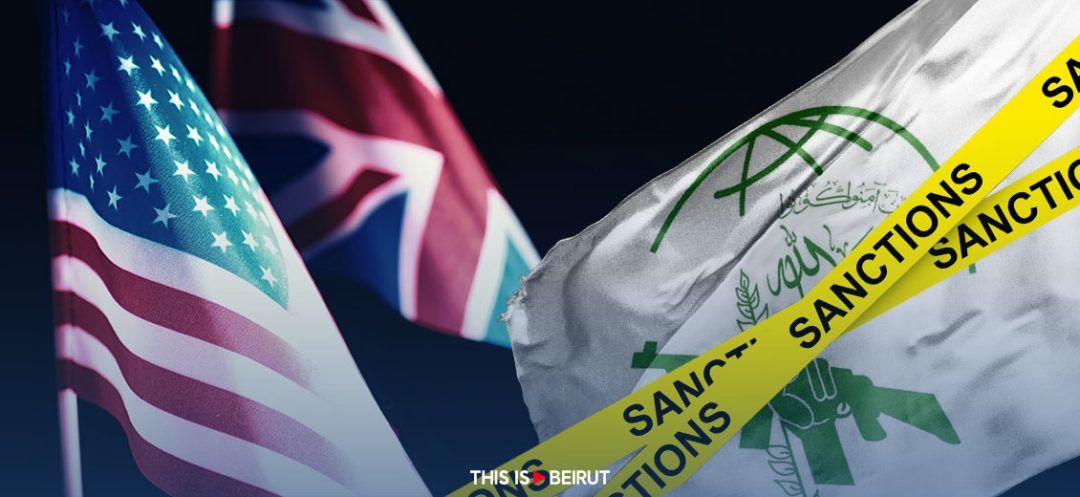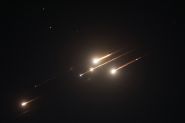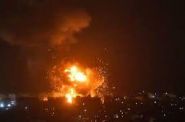- Home
- War in the Middle East
- US, UK Impose Sanctions on Key Houthi Figures

The United Kingdom and the United States announced on Thursday, sanctions on key Houthi figures, citing the aim to safeguard maritime security in the Red Sea.
The United Kingdom and the United States on Thursday said they had imposed sanctions on key Houthi figures to protect maritime security in the Red Sea.
British Foreign Secretary David Cameron said the restrictions "reinforce our clear message to the Houthis in recent weeks," promising to target those behind the "unacceptable and illegal actions" against shipping.
Four key Houthi figures involved in the attacks will be subject to UK asset freezes, arms embargoes and travel bans, a statement from Cameron's department read.
Targets of the sanctions include the commander of the Houthi naval forces and the Houthi defense minister, both of whom are involved in coordinating the recent attacks on international shipping in the Red Sea, it added.
"These sanctions reinforce our clear message to the Houthis in recent weeks," Cameron said.
"We can degrade their ability to attack international shipping. We are determined to protect freedom of navigation. We will back our words with actions."
The sanctions are the first to be jointly imposed against the Iran-backed Houthis by the UK and US since the attacks in the Red Sea began in November.
Pre-existing sanctions against 11 Houthi individuals and two entities remain in force.
US and UK forces struck Houthi targets on Monday, their second round of joint military action after a first wave of strikes against the Yemeni group earlier this month.
Since the first joint strikes, the United States has also launched individual air raids against missiles that Washington said posed imminent threats to both civilian and military vessels.
But the Houthis have vowed to continue their attacks—just one part of a growing crisis in the Middle East linked to the Israel-Hamas war. This has raised tensions across the region as well as fears of a broader war directly involving Iran.
The Houthis warned on Tuesday that the US-UK strikes would not go "unanswered and unpunished."
Khalil Wakim, with AFP
The United Kingdom and the United States on Thursday said they had imposed sanctions on key Houthi figures to protect maritime security in the Red Sea.
British Foreign Secretary David Cameron said the restrictions "reinforce our clear message to the Houthis in recent weeks," promising to target those behind the "unacceptable and illegal actions" against shipping.
Four key Houthi figures involved in the attacks will be subject to UK asset freezes, arms embargoes and travel bans, a statement from Cameron's department read.
Targets of the sanctions include the commander of the Houthi naval forces and the Houthi defense minister, both of whom are involved in coordinating the recent attacks on international shipping in the Red Sea, it added.
"These sanctions reinforce our clear message to the Houthis in recent weeks," Cameron said.
"We can degrade their ability to attack international shipping. We are determined to protect freedom of navigation. We will back our words with actions."
The sanctions are the first to be jointly imposed against the Iran-backed Houthis by the UK and US since the attacks in the Red Sea began in November.
Pre-existing sanctions against 11 Houthi individuals and two entities remain in force.
US and UK forces struck Houthi targets on Monday, their second round of joint military action after a first wave of strikes against the Yemeni group earlier this month.
Since the first joint strikes, the United States has also launched individual air raids against missiles that Washington said posed imminent threats to both civilian and military vessels.
But the Houthis have vowed to continue their attacks—just one part of a growing crisis in the Middle East linked to the Israel-Hamas war. This has raised tensions across the region as well as fears of a broader war directly involving Iran.
The Houthis warned on Tuesday that the US-UK strikes would not go "unanswered and unpunished."
Khalil Wakim, with AFP
Read more



Comments